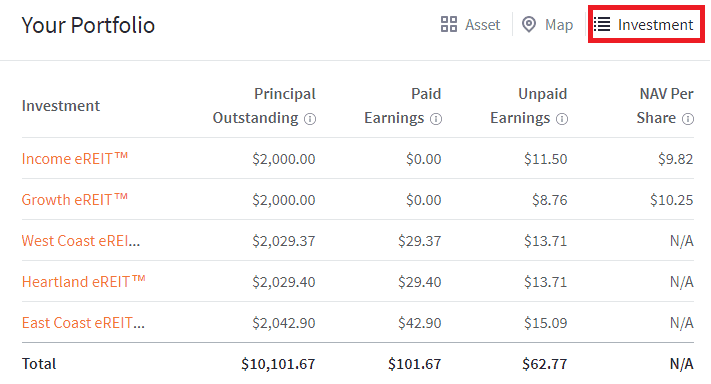
You must choose the best account when you are ready to start trading forex. You can make more money over time by choosing the right account. It can also help reduce your risk.
There are a variety of different trading accounts available, each with their own features, fees and risk levels. To choose the right trading account, it is important to take into account your trading style, strategy and capital.
Standard Forex accounts offer many features to non-professional traders at a low cost. They also allow you to leverage your account with margin, which can multiply your profits and losses.
If you are looking to open a forex trading platform, your first consideration should be the minimum required deposit. Some brokers have high minimums, while others offer more flexible options. Comparing the minimum deposits of different brokers will help you find the right option.

You should also think about your budget and how much you can afford to spend on your forex trading. It is important to consider this, especially if you are looking to begin with a small investment.
You may want to consider a mini-forex account if you have limited funds to invest. These accounts offer lower costs and are perfect for beginners. They also have more restrictions.
Leverage is an important factor when you are trading forex. It is important to not use too many leverages, because this can increase risk and decrease profits. Standard trading accounts can have leverage up to 50:1, while mini forex accounts can go as high as 400.
Traders also prefer to do smaller trades. These are micro and Nano lots and range from 100 to 1000 units of currency. Smaller lots can be more profitable, but they can also be more volatile.
There are a few different trading account types, including standard, managed, and swap-free. Swap-free trading accounts aren't always the best choice, though, because they have higher fees.

Demo accounts are the best way to get to know all of the different types of trading accounts. Most brokers offer free trial accounts that let you test their platforms and services without risking your own money.
A commodity trading account lets you buy and trade primary economic products like gold, oil, silver, and gas. They can be traded in the stock exchange and are good for investors looking to diversify portfolios or reduce risk.
You should contact your broker when you're ready for an account to determine the minimum amount of money required. Also, ask if they accept credit cards. A credit card is the most popular and convenient way to deposit money in your account. Some brokers also accept cryptocurrency or local currency.
FAQ
What is the difference of a broker versus a financial adviser?
Brokers specialize in helping people and businesses sell and buy stocks and other securities. They manage all paperwork.
Financial advisors are experts on personal finances. They help clients plan for retirement and prepare for emergency situations to reach their financial goals.
Banks, insurers and other institutions can employ financial advisors. You can also find them working independently as professionals who charge a fee.
It is a good idea to take courses in marketing, accounting and finance if your goal is to make a career out of the financial services industry. Also, it is important to understand about the different types available in investment.
How can I invest in stock market?
Brokers allow you to buy or sell securities. A broker sells or buys securities for clients. You pay brokerage commissions when you trade securities.
Banks typically charge higher fees for brokers. Because they don't make money selling securities, banks often offer higher rates.
If you want to invest in stocks, you must open an account with a bank or broker.
If you use a broker, he will tell you how much it costs to buy or sell securities. He will calculate this fee based on the size of each transaction.
Ask your broker questions about:
-
The minimum amount you need to deposit in order to trade
-
Are there any additional charges for closing your position before expiration?
-
What happens to you if more than $5,000 is lost in one day
-
How many days can you keep positions open without having to pay taxes?
-
How you can borrow against a portfolio
-
whether you can transfer funds between accounts
-
How long it takes transactions to settle
-
How to sell or purchase securities the most effectively
-
How to Avoid fraud
-
How to get help when you need it
-
How you can stop trading at anytime
-
What trades must you report to the government
-
Reports that you must file with the SEC
-
What records are required for transactions
-
How do you register with the SEC?
-
What is registration?
-
How does this affect me?
-
Who must be registered
-
When do I need to register?
What is the difference in marketable and non-marketable securities
Non-marketable securities are less liquid, have lower trading volumes and incur higher transaction costs. Marketable securities are traded on exchanges, and have higher liquidity and trading volumes. These securities offer better price discovery as they can be traded at all times. However, there are some exceptions to the rule. There are exceptions to this rule, such as mutual funds that are only available for institutional investors and do not trade on public exchanges.
Marketable securities are less risky than those that are not marketable. They generally have lower yields, and require greater initial capital deposits. Marketable securities tend to be safer and easier than non-marketable securities.
A large corporation bond has a greater chance of being paid back than a smaller bond. This is because the former may have a strong balance sheet, while the latter might not.
Investment companies prefer to hold marketable securities because they can earn higher portfolio returns.
Why is a stock called security.
Security is an investment instrument whose value depends on another company. It may be issued either by a corporation (e.g. stocks), government (e.g. bond), or any other entity (e.g. preferred stock). The issuer promises to pay dividends to shareholders, repay debt obligations to creditors, or return capital to investors if the underlying asset declines in value.
Are stocks a marketable security?
Stock is an investment vehicle that allows you to buy company shares to make money. You do this through a brokerage company that purchases stocks and bonds.
You can also directly invest in individual stocks, or mutual funds. There are actually more than 50,000 mutual funds available.
The difference between these two options is how you make your money. Direct investment is where you receive income from dividends, while stock trading allows you to trade stocks and bonds for profit.
In both cases you're buying ownership of a corporation or business. However, when you own a piece of a company, you become a shareholder and receive dividends based on how much the company earns.
Stock trading allows you to either short-sell or borrow stock in the hope that its price will drop below your cost. Or you can hold on to the stock long-term, hoping it increases in value.
There are three types stock trades: put, call and exchange-traded funds. You can buy or sell stock at a specific price and within a certain time frame with call and put options. ETFs, also known as mutual funds or exchange-traded funds, track a range of stocks instead of individual securities.
Stock trading is very popular since it allows investors participate in the growth and management of companies without having to manage their day-today operations.
Stock trading is not easy. It requires careful planning and research. But it can yield great returns. You will need to know the basics of accounting, finance, and economics if you want to follow this career path.
Statistics
- The S&P 500 has grown about 10.5% per year since its establishment in the 1920s. (investopedia.com)
- US resident who opens a new IBKR Pro individual or joint account receives a 0.25% rate reduction on margin loans. (nerdwallet.com)
- Ratchet down that 10% if you don't yet have a healthy emergency fund and 10% to 15% of your income funneled into a retirement savings account. (nerdwallet.com)
- Our focus on Main Street investors reflects the fact that American households own $38 trillion worth of equities, more than 59 percent of the U.S. equity market either directly or indirectly through mutual funds, retirement accounts, and other investments. (sec.gov)
External Links
How To
How to make a trading program
A trading plan helps you manage your money effectively. It helps you understand your financial situation and goals.
Before you start a trading strategy, think about what you are trying to accomplish. It may be to earn more, save money, or reduce your spending. You might consider investing in bonds or shares if you are saving money. If you are earning interest, you might put some in a savings or buy a property. Perhaps you would like to travel or buy something nicer if you have less money.
Once you decide what you want to do, you'll need a starting point. It depends on where you live, and whether or not you have debts. Consider how much income you have each month or week. Your income is the net amount of money you make after paying taxes.
Next, make sure you have enough cash to cover your expenses. These expenses include rent, food, travel, bills and any other costs you may have to pay. All these things add up to your total monthly expenditure.
You'll also need to determine how much you still have at the end the month. This is your net discretionary income.
You're now able to determine how to spend your money the most efficiently.
Download one from the internet and you can get started with a simple trading plan. You could also ask someone who is familiar with investing to guide you in building one.
Here's an example.
This will show all of your income and expenses so far. You will notice that this includes your current balance in the bank and your investment portfolio.
And here's another example. A financial planner has designed this one.
It will allow you to calculate the risk that you are able to afford.
Remember: don't try to predict the future. Instead, think about how you can make your money work for you today.